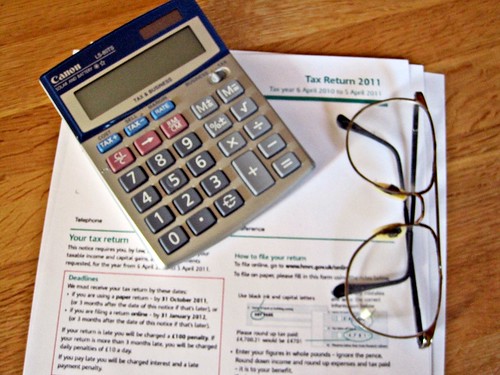Taxes can be very tricky! Best to go straight to the source, the Internal Revenue Service, when looking for information on taxes and tax laws – some of which come into play when you have sold your house. Here are the IRS’s top 10 tax tips for home sellers as seen on the IRS website:
- In general, you are eligible to exclude the gain from income if you have owned and used your home as your main home for two years out of the five years prior to the date of its sale.
- If you have a gain from the sale of your main home, you may be able to exclude up to $250,000 of the gain from your income ($500,000 on a joint return in most cases).
- You are not eligible for the exclusion if you excluded the gain from the sale of another home during the two-year period prior to the sale of your home.
- If you can exclude all of the gain, you do not need to report the sale on your tax return.
- If you have a gain that cannot be excluded, it is taxable. You must report it on Form 1040, Schedule D, Capital Gains and Losses.
- You cannot deduct a loss from the sale of your main home.
- Worksheets are included in Publication 523, Selling Your Home, to help you figure the adjusted basis of the home you sold, the gain (or loss) on the sale, and the gain that you can exclude.
- If you have more than one home, you can exclude a gain only from the sale of your main home. You must pay tax on the gain from selling any other home. If you have two homes and live in both of them, your main home is ordinarily the one you live in most of the time.
- If you received the first-time homebuyer credit and within 36 months of the date of purchase, the property is no longer used as your principal residence, you are required to repay the credit. Repayment of the full credit is due with the income tax return for the year the home ceased to be your principal residence, using Form 5405, First-Time Homebuyer Credit and Repayment of the Credit. The full amount of the credit is reflected as additional tax on that year’s tax return.
- When you move, be sure to update your address with the IRS and the U.S. Postal Service to ensure you receive refunds or correspondence from the IRS. Use Form 8822, Change of Address, to notify the IRS of your address change.
For more information about selling your home, see IRS Publication 523, Selling Your Home. This publication is available at www.irs.gov or by calling 800-TAX-FORM (800-829-3676). SOURCE: IRS Tax tips for individuals selling their home
Realtors are not laywers nor are accountants. We cannot give legal or tax advice, but we can point you in the right direction to obtain information as we have done here. The information presented above is courtesy of the IRS. Please consult a tax advisor for your tax concerns and please consult your First Weber real estate agent for your Wisconsin real estate needs.
Thank you for reading the First Weber Wisconsin real estate & Wisconsin living blog for information. We hope you found this information useful and if so, please share.
photo credit http://www.flickr.com/photos/59937401@N07/5856616883/
